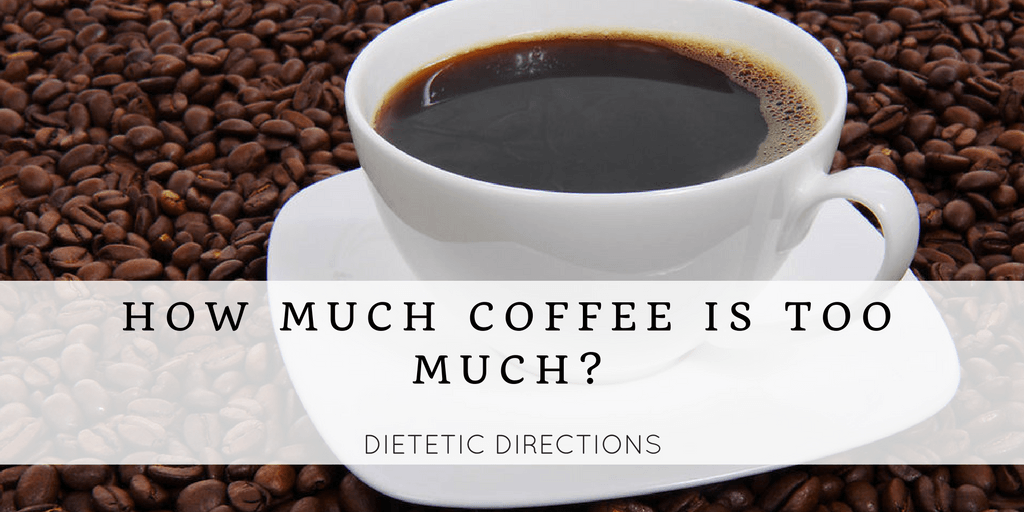
How much coffee is too much?
Welcome to part two of my blog series on coffee and caffeine. This topic has been inspired by many of my clients in private practice who have expressed legitimate concern wondering if they drink too much coffee. Therefore, today we will delve into Health Canada recommendations for daily caffeine limit and I’ll breakdown the caffeine content in common store-bought beverages!

Enjoy your coffee but unsure if you’re drinking too much? Find out more below!
How much Caffeine is Safe to Consume?
Much research has been done on the health effects of coffee and the consensus has been reached that ‘when consumed in moderation’, there do not appear to be adverse affects to our overall health. In fact, as discussed in my previous post, there appear to be various health benefits attributed to your cup of regular coffee or even decaf coffee!
Here are Health Canada’s caffeine limits:
Men and Women 19 and older: 400 mg daily
Pregnant and Breastfeeding Women: 300 mg daily
| Beverage | Size | Caffeine (mg) |
|---|---|---|
| Tim Hortons Coffee | Medium (14 oz) | 200 |
| Tim Hortons Coffee | Large (20 oz) | 240 |
| Starbucks Brewed Coffee | Tall (12 oz) | 260 |
| Starbucks Brewed Coffee | Grande (16 oz) | 330 |
| Starbucks Brewed Coffee | Venti (22 oz) | 415 |
| Tim Hortons Decaffeinated Coffee | Medium (14 oz) | 12 |
| Tim Hortons Decaffeinated Coffee | Large (20 oz) | 15 |
| Starbucks Decaffeinated Coffee | Tall (12 oz) | 20 |
| Starbucks Tazo Black or Chai Tea Latte | Grande (16 oz) | 100 |
| Tim Hortons Steeped tea | Medium (14 oz) | 120 |
| Starbucks Cappuccino | Tall (12 oz) | 75 |
Bottom Line:
Caffeine is safe when consumed in ‘moderation’. Be mindful when estimating your caffeine intake since coffee mugs and cups are often large sizes. It is important to highlight as well that decaf does not mean ‘caffeine free’. If you are drinking coffee in excess (above the recommended limits) it is advised to cut down, as the negative effects of caffeine tend to emerge with excessive drinking.



